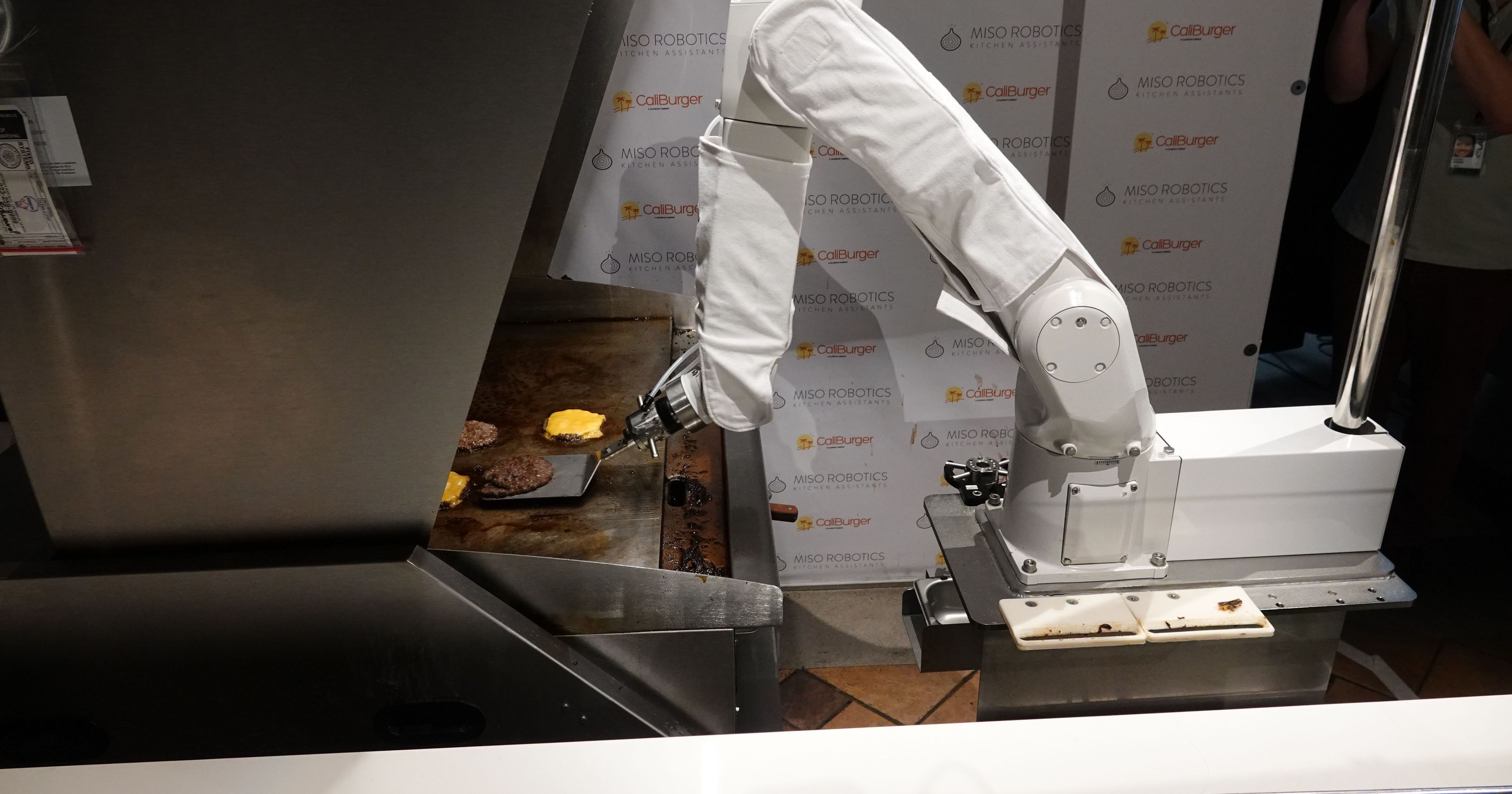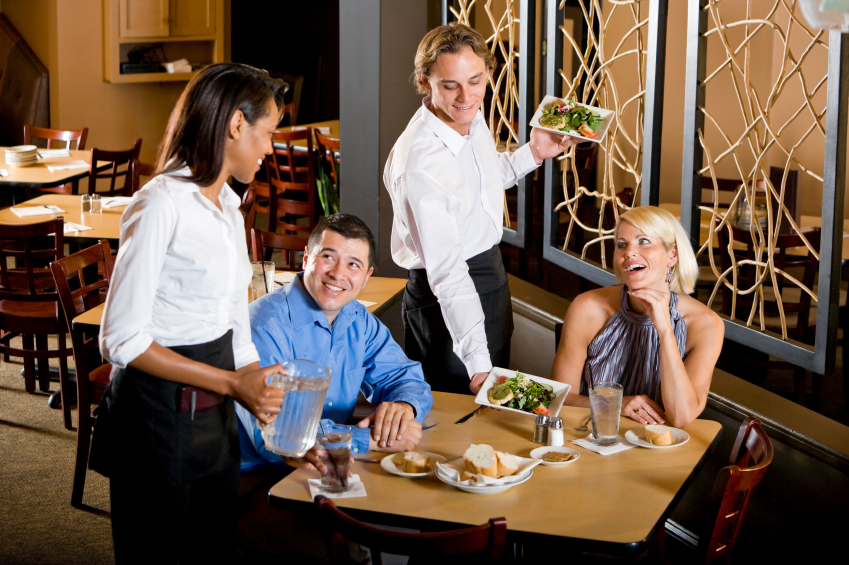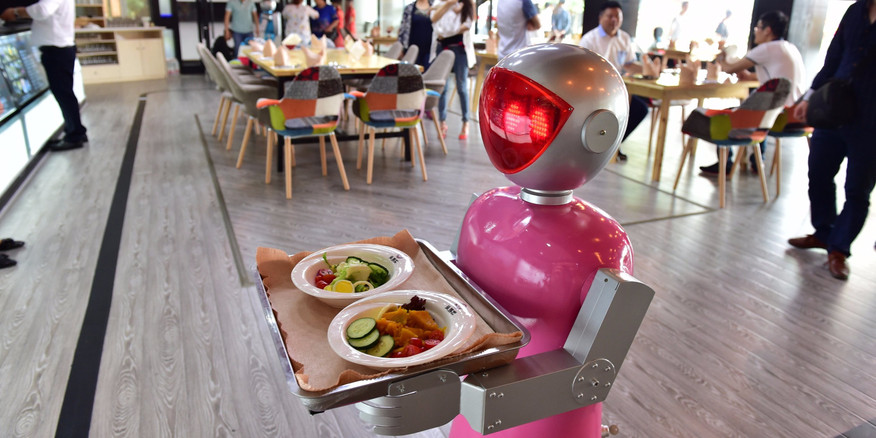Oct 3rd 2018 - Upserve
The Role of Robots in Restaurants
It’s 2018 and our world is rapidly becoming more and more technology focused—and that technology is becoming more and more focused on robots and AI, even in the restaurant industry.
As Dr. Deepak Sekar told Upserve, “The proliferation of robots handling repetitive tasks in the kitchen will enable humans to focus on more creative pursuits, such as recipe development, as well as interpersonal front-of-house interactions,” adding that he believes that robots will play an integral role in restaurants for years to come.
A.I in Restaurants
Most successful restaurants are integrating technology into their day-to-day processes. Online Ordering integrations mean fewer staff-hours are spent answering phones. Restaurant POS systems are replacing pen and paper, and inventory is no longer done by hand. Most restaurants are launching digital loyalty programs, nixing the punch hole of yesteryear. The data backs up these trends; Engaged loyal customers spend 60% more than others, for example. The next logical step is for robots to start entering the workforce.
Robots in the Kitchen

Right now, the majority of robot work in the restaurant industry is being carried out in the kitchen. As CNBC reports, a startup based in (you guessed it) southern California called Miso Robotics built a robot aptly named Flippy to replace the work of fry cooks. “Flippy employs machine learning and computer vision to identify patties on a grill, track them as they cook, flip and then place them on a bun when they’re done.” Other robots like Flippy include Frobot and Sally, a salad-making bot that, unlike the others, operated in a front of house capacity.
Posted in places like the lobby of a busy Silicon Valley hotel, Sally’s work is customizable. Users are able to tinker with her salad outputs based on variables like calorie count and the addition or subtraction of ingredients based on taste preferences or allergies. Because all of Sally’s ingredients are sanitary and kept separate from the rest, cross-contamination of allergens and the risk of foodborne illness is reduced.
However, as many benefits as restaurant industry robots might have to offer, there are certainly some drawbacks that have to be considered.
What it Means for Workers
“Fry cooks, the people who flip burgers (or fillets) all day on a hot grill”—and who Flippy is essentially designed to replace—“move on from the job faster than others in the field,” continues CNBC. While on one hand it’s an advantage for restaurant owners to not have to hassle with turnover and the drain of constant hiring and training of new employees, the proliferation of robots like Flippy will surely eliminate jobs that some Americans rely on.
“About 80 percent of job losses in American manufacturing over the past 30 years, for example, were the result of technological displacement. And recent studies indicate that the pattern will spread across other industries,” according to a Washington Post article that covered one Flippy robot being laid off from a gig in California for being too slow. Customers flooded the restaurant to get a glimpse of the new burger-making ‘bot, but in doing so created more traffic than Flippy could keep up with.
What Lies Ahead

While robot creators are adamant that their technology isn’t going to replace human jobs, it appears that the sentiment might objectively be true. Saru Jayaraman, a co-founder of the worker advocacy group Restaurant Opportunities Centers United, told Eater that robots in the kitchen could actually lead to an increase in restaurant employment in the future, pointing to the case of California. The state is “ground zero for both the booming restaurant industry and for automation in restaurants. For starters, even as automation becomes more commonplace in California, restaurant employment there has exploded, increasing 45 percent from 2001 to 2016,” Eater reports. It’s also true that feeling special and taken care of in a restaurant are human emotions that can best be delivered by other humans. That’s why it’s important that restaurateurs continue asking their guests for feedback and ways to improve. So while robots will continue to get more advanced and capable, we believe there will always be a place for humans to deliver remarkable hospitality.
While the future of restaurant work can’t be predicted for certain, chances are robots are going to have a role in it. But it will be up to humans to determine what that role will be.

